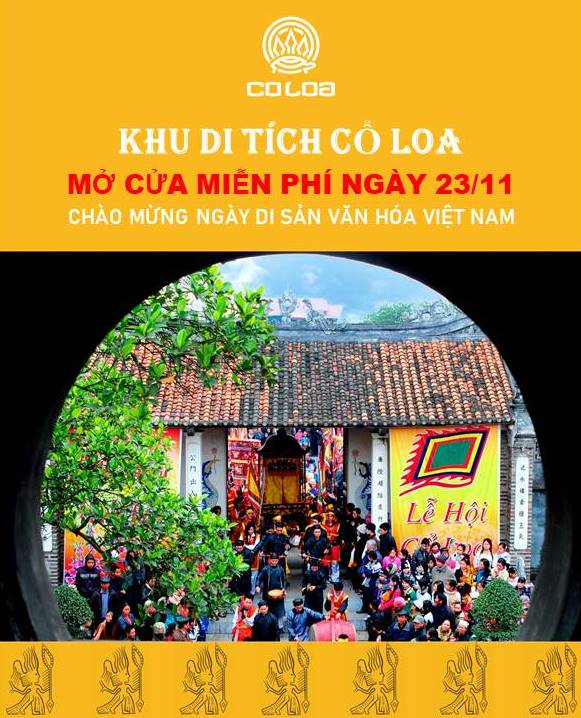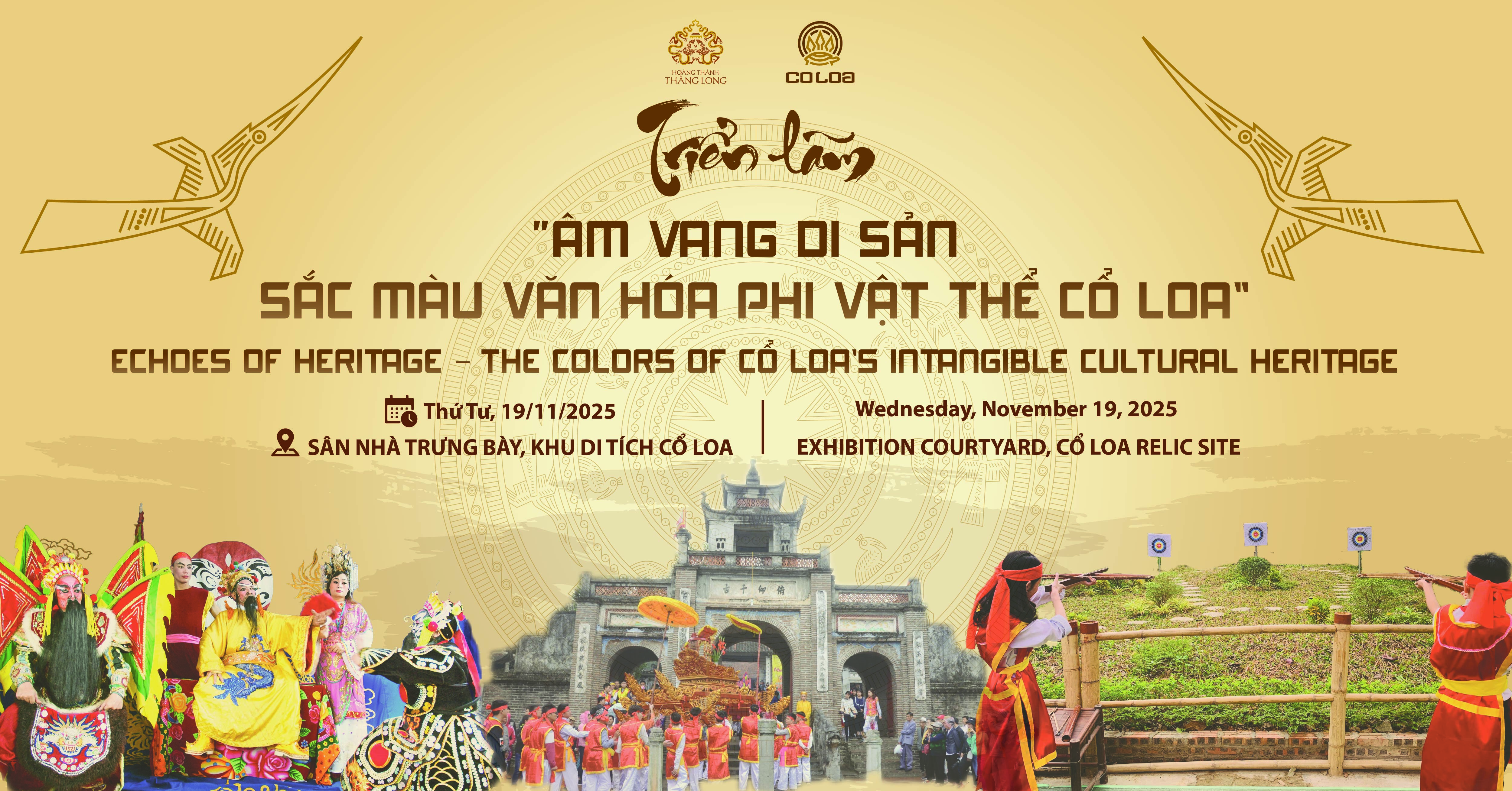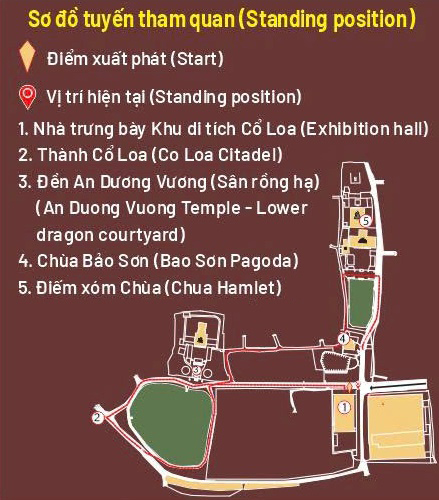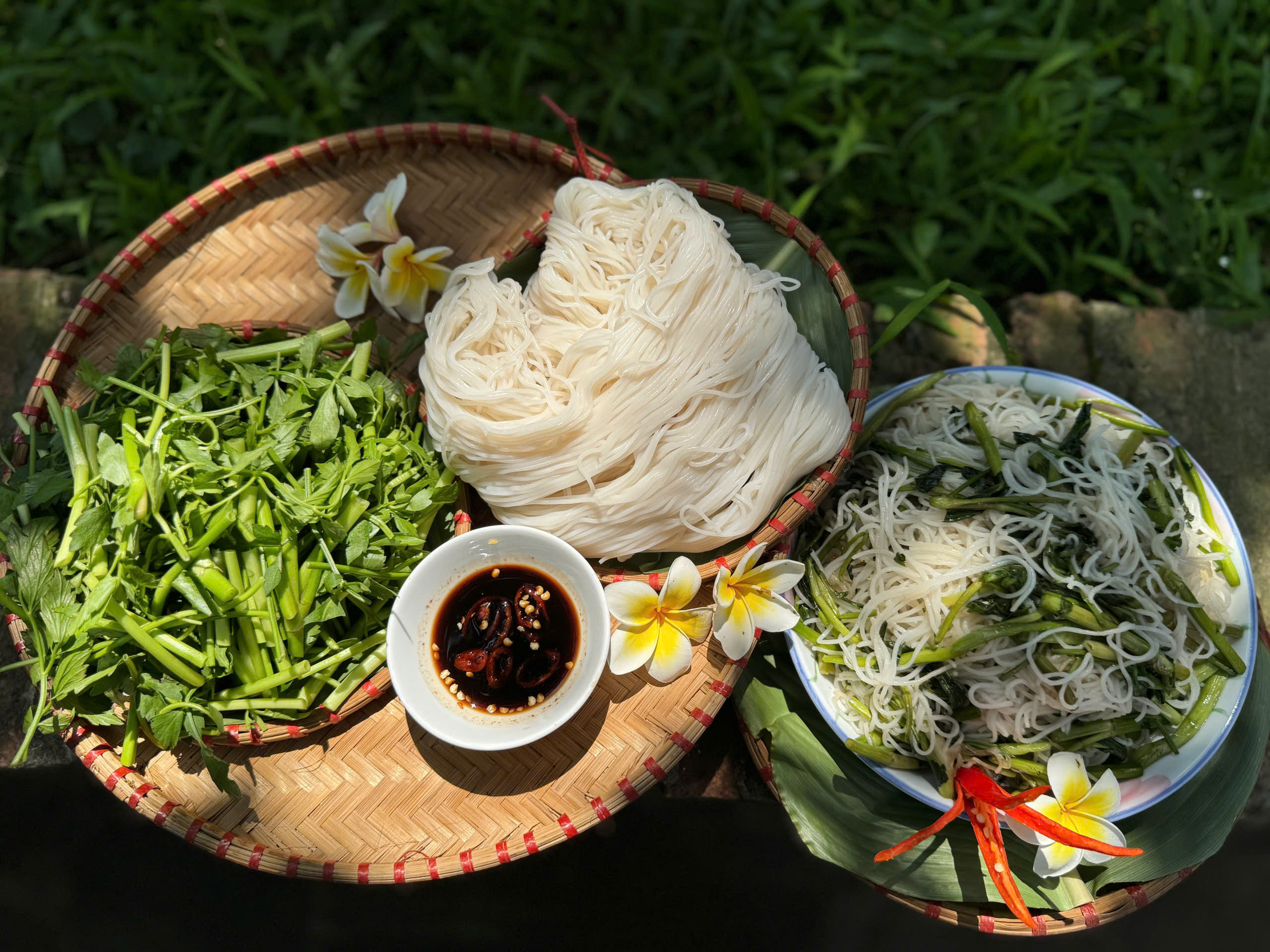(Ngô Quyền’s homeland is Đường Lâm
Save his people from the suferings for thousands of years)
(Extacted: Hồ Chí Minh, Lịch sử nước ta (Our national history), 1941)
Ngô Quyền (898 – 944), was born in a powerful patriarchal family in Đường Lâm district, his father Ngô Mân worked as Châu mục (the Head of one of 9 divisions at that time), and his mother of Phạm family lived in the same district. "When the King was just born, there were strange light full of his house, his appearance was abnormal, had 3 moles on his back, an astrologer thought it was strange, and said he could master a direction, so he was named Quyền" (Complete history of Đại Việt sử). Ngô-family register records: “The ancestor of Ngô Quyền, whose first name was Tùng and family name was Đỗ, got married at Đường Lâm. He had three sons, Tương, Lý, and Đỗ. Tương had a son, Vinh. Vinh had 6 sons, the eldest son was Xuân. Xuân helped Triệu Quang Phục to fight against Han domination. Xuân had a daughter, Hoa. Hoa gave birth to Côn. Côn got married to a girl of Phạm family at Đường Lâm, and had two sons and a daughter, the eldest son was Ngô Quyền”. At the age of 20, both of his parents died, Ngô Quyền moved to Ái Châu (Thanh Hóa) and worked as a general for Dương Đình Nghệ, Dương Đình Nghệ adopted him as a son, married his daughter Dương Thị to him and let him guard Ái Châu.
In October 938, Ngô Quyền took his soldiers from Ái Châu to fight against Kiều Công Tiễn, exterminated the internal catastrophe and defeated the scheme "internal and external cooperation" of Southern Han dynasty. After that, he mobilized the people all over the country to join the resistance war against the Southern Han invaders on Bạch Đằng river. Ngô Quyền ordered his soldiers to fix the wooden spikes with pointed heads covered with iron into Bạch Đằng-river bed, with the intention to lure the enemy to this area when the the tide came up, the piles would not be discovered, but when the tide went out, the enemy boats would run aground, and Ngô Quyền’s soldiers would fight against them then.
On the last winter day in 938, Liu Hongcao commanded a powerful army troop to cross the sea and enter Bạch Đằng coastal estuary. Ngô Quyền deceived the enemy and only sent light boats, small troops and pretended to be defeated and fled upstream. When the tide rose, he ordered his soldiers to fight against them. When the large warships of the Southern Han invaders ran aground and nearly all were pierced by the stakes. At that time, he sent his soldiers to attack them fiercely. Southern Han invaders were defeated and ran away, Liu Hongcao and half of his army men were killed. Since then, Southern Han dynasty gave up their dream of invading Giao Châu.
After the victory on Bạch Đằng coastal estuary, the Chinese domination for over 1000 years ended, the feudal period of the national independence and autonomy started, in the spring of the Kỷ Hợi year (939), Ngô Quyền resigned the post of jiedushi, proclaimed King, located the Imperial City at Cổ Loa, appointed Dương Thị as a queen, established the court apparatus with hundreds of civil and military mandarins, instituted the court etiquettes, creating the pivotal steps for Vietnamese society in the tenth century.
Ngô Quyền chose Cổ Loa as the Imperial city because he wanted to rely on the high ramparts, deep moat, the focal position of waterway traffic in the center of the Hồng River delta, so that the court could firmly grasp the delta to reach out and manage the entire country territory. Tiền Ngô Vương was very aware of the national rule and succession of Hùng and Thục kings. In Đại Việt sử ký toàn thư (Complete history of Đại Việt), the Lê-period national historical books compiled by historian Ngô Sĩ Liên, Ngô Quyền is ranked in the highest position of the Đại Việt kings: “the King who is very ingenious, and very good at defeating the enimies, who deserves credit for restoring his country and the top position of the kings”. An outstanding patriot in the early twentieth century, Phan Bội Châu, honored Ngô Quyền as the "ancestor restoring our country". Lê Văn Hưu wrote: “Tiền Ngô Vương was able to take the newly assembled Vietnamese army and defeated a hundred thousands of Liu Hongcao’s invaders, started the country and proclaimed himself a king, so that the Chinese enimies did not dare to come to Việt Nam anymore. It is possible to say that he was once irritated, he could save his people, he was very ingenious, and very good at defeating the enimies. Although he just proclaimed himself a king, and was unable to ascend and change the year name, the orthodoxy of our country was restored”.
The statue of Emperor Ngô Quyền at Bạch Đằng Giang site, Thủy Nguyên district, Hải Phòng.
Source: Hải Phòng Museum
Model of Ngo Quyen's battle on Bach Dang river
Source: National Museum of History
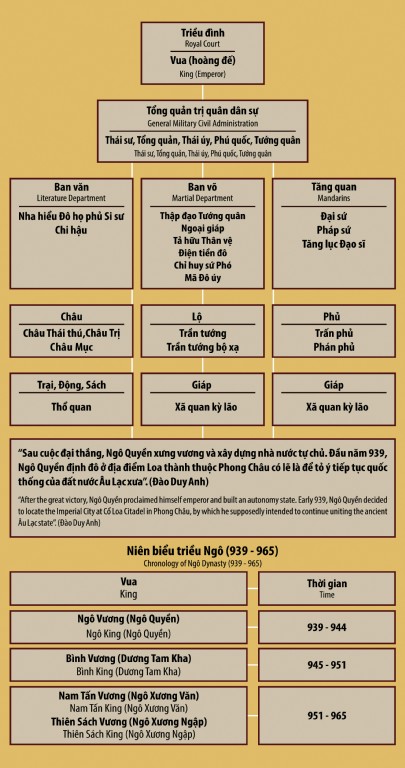
System of the Ngô dynasty
MANAGEMENT DEPARTMENT OF COLOA VESTIGE SITE

